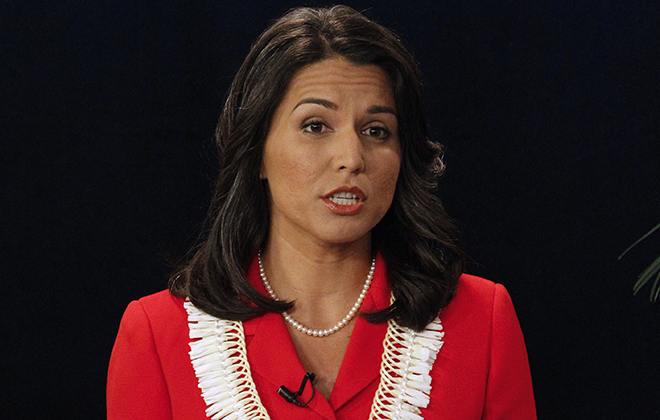National and local tourism officials are emphasizing the need to continue the U.S. visa waiver program in the wake of U.S. Rep. Tulsi Gabbard’s call to temporarily suspend the program between the United States and Europe.
Gabbard, D-Hawaii, who began seeking program pullbacks in 2014, reiterated that message Nov. 20 on CNN’s "The Situation Room with Wolf Blitzer." In light of the most recent terrorist attacks in Paris, Gabbard said she was concerned about the open avenues of travel that people have between Europe and the U.S.
ONLY FRIENDLY COUNTRIES ALLOWED
A country must meet various requirements to be considered for designation in the visa waiver program. Requirements include, but are not limited to:
» Enhanced law enforcement and security-related data sharing with the United States;
» Issuing e-passports;
» Having a visitor (B) visa refusal rate of less than 3 percent;
» Timely reporting of both blank and issued lost and stolen passports,
» Maintenance of high counterterrorism, law enforcement, border control and document security standards.
Source: U.S. Department of State
|
"They should be required to go through the normal visa application process so that we can thoroughly vet exactly who’s trying to come into the United States because, as it is now, really it could just be a matter of hours before someone travels through these different borders, someone who’s become a foreign fighter, who’s been fighting in Syria, and ends up here on the United States soil, presenting a potential threat," Gabbard told Blitzer.
Gabbard, whose office did not respond to the Honolulu Star-Advertiser, has said that she wants visitors from European countries to go through a visa application process before they are allowed to set foot on U.S. soil. But tourism officials say ending the program would have a detrimental impact on tourism, could complicate coalition-building efforts, and might make it more difficult for U.S. citizens to access Europe.
Currently, the U.S. has reciprocal visa waiver agreements with 38 countries that allow citizens of those countries to travel to the U.S. without a visa for stays of 90 days or less. To travel through the visa waiver program, visitors must receive authorization through the Electronic System for Travel Authorization prior to boarding a U.S.-bound air or sea carrier.
"It’s very surprising that a member of Hawaii’s congressional delegation would advocate for these actions," said Patricia Rojas-Ungar, vice president of government relations for the U.S. Travel Association. "Not only is tourism the No. 1 industry in Hawaii, but the visa waiver program has several layers of security and every homeland security expert has said the program is secure and keeps our country safer."
Rojas-Ungar called the visa waiver program the single most important overseas travel program for the U.S. In 2014, more than 20.3 million visitors, or 60 percent of all U.S. visitors, came here through the visa waiver program, she said.
"They pumped $190 billion into the U.S. economy — $13.5 billion came from the United Kingdom alone," she said.
While Europe is not one of Hawaii’s top visitor markets, it’s a market that the Hawaii Tourism Authority has allocated resources to help grow. For the first nine months of 2015, Hawaii welcomed 108,655 visitors from European countries. While the market has been flat this year, Hawaii tourism officials have forecast that European arrivals to the isles in 2016 will grow 1.5 percent to 148,107 visitors and that their spending will grow 11.7 percent to $397.8 million.
"The visa waiver program is very important for Hawaii and has made a significant improvement in our results," HTA Chairman Rick Fried said. "I think it’s been shown that those countries where we don’t have visa waivers tend to travel more to countries that permit them better access."
Fried said the U.S. should be concentrating on improving and not impeding access for leisure travelers.
"If there is a real need to add security to close vulnerabilities, we are happy to look at it, but we don’t need security theater," Rojas-Ungar said. "We think suspending the program is the wrong approach. Homeland Security has been proactive and already has made changes that we support. In fact, officials from visa waiver countries and Homeland Security are going to meet this week to talk about more changes."
Rojas-Ungar said that at the end of 2014 the U.S. Department of Homeland Security added a list of new questions that tightened the application process. In August, the department said it would add new requirements to screen across borders and increase the use of federal air marshals on flights from visa waiver countries.
HTA Chief Operating Officer Randy Baldemor said visa waiver programs are important because they generally make it easier for international travelers to come to Hawaii.
"We certainly want to encourage international travelers to come to our islands," Baldemor said. "Visa waivers do that by allowing visitors to come with a little less planning and frustration."

